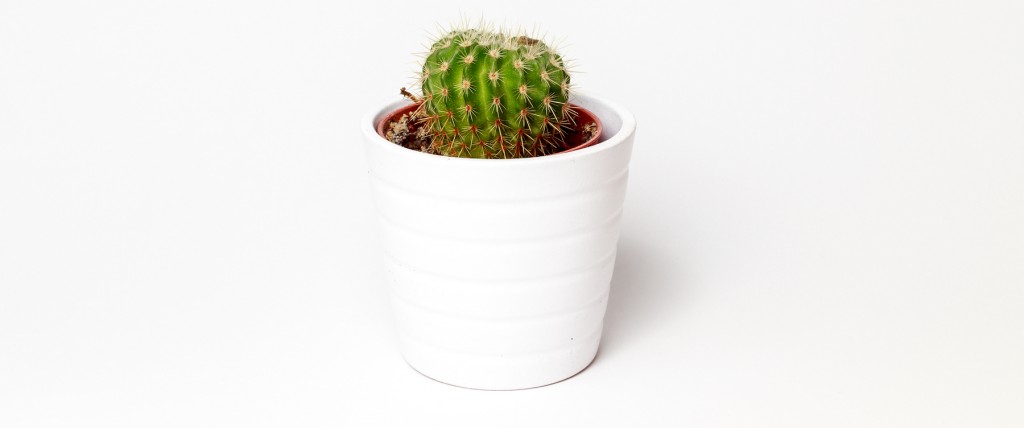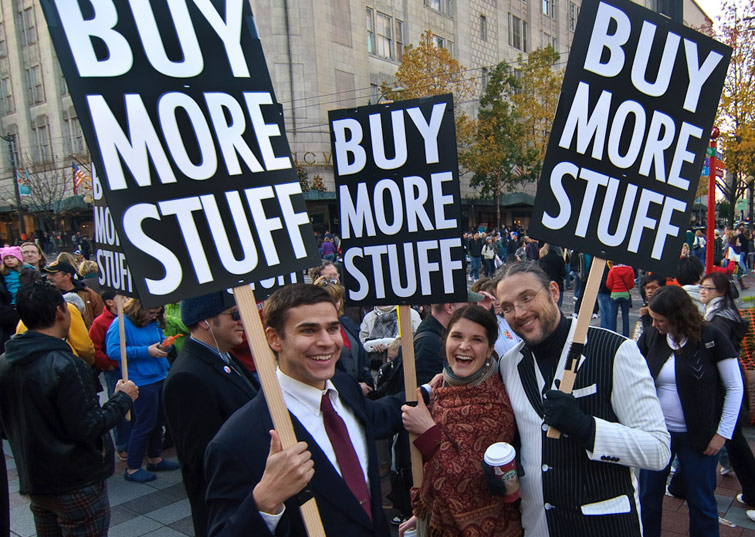
I decided to get rid of all my stuff and learned to live more with much less
Since the dawn of the industrial age, those of us in so-called ‘developed’ countries have been led to believe that production, consumption and growth are all needed to build healthy economies and individual prosperity. This should, in turn, lead to greater happiness and well-being. But is this true?
Sure, there’s no denying this has brought many of us a higher - bigger houses, faster cars, and loads more ‘stuff’. But the question remains: has this really made us any more satisfied, any happier?
The sort of science-y bit
According to US psychologist David G. Myers, greater wealth, consumption and choices have not made people any happier compared to their grandparents' day, when they owned (and owed) a lot less. Rather than rising levels of well-being, we’ve seen more credit card debt, more self-storage facilities to house the things we compulsively buy, higher levels of depression, and an unhappiness with life.
In an article called ‘The funds, friends, and faith of happy people’, Myers writes: "Compared with their grandparents, today's young adults have grown up with much more affluence, slightly less happiness and much greater risk of depression and assorted social pathology."

So what went wrong? If having more isn’t a guarantee of happiness, could having less be a better option?
Living with less (often called ‘minimalism’) is not meant to be a hardship. It’s about getting rid of all the excess and distilling life down to what’s essential: the things that give us joy, purpose and value. We’re not just talking the physical stuff; we’re also talking about our mental and emotional states and how they can be improved. Minimalism is about achieving a change in perspective and creating new habits to bring about a positive transformation in our life. The ultimate aim of having less is to live more.
So who am I to tell you that having less works?
In my ‘previous’ life, I was on the classic success and consumption-driven treadmill. The problem was that I was finding little joy and no real satisfaction in it.
After university, I spent years as a corporate warrior in the telecoms industry with stints in Asia and America before returning to the UK to live. At first, the money and prestige that my career brought me gave me a sense of satisfaction and empowerment. Whenever I felt unhappy or stressed, all I needed to do was indulge in a bit of ‘retail therapy'. There were quite a few occasions when I liked a dress or top and couldn't decide which colour to buy, so would just buy them all (it makes me cringe just to think about it now!).
As the years went by, I worked harder, travelled more and earned even more money. But somehow, I felt unhappier, emptier, more stressed and increasingly frustrated with my life. Weekends became sacred, as these were the only two days I actually felt happy and in control, browsing my favourite bookshops and picking up books I hardly had time to read. In a nutshell, I only really lived two out of seven days a week and was far from happy.

What happened to me?
Then one day, I simply had enough of the way things were going and decided to change something.
In my darkest hour, I discovered there were other choices I could make. I didn't have to do a job I hated and that didn’t align with my values and passions. I could pursue my interests and make a living out of it. I didn't have to live a life that I dreaded now, only start living and enjoy life when I eventually retired. I didn't need all of this 'stuff' that kept me rooted in a life and job that sucked out my joy, hope and energy.
Ok, so I’m sure many of us have thought about quitting our jobs, but actually doing it takes a lot of courage, especially when you've got no idea what you're going to do afterward! For me, jumping off into the unknown was no worse than my then work situation. So I jumped.
To my relief and surprise, I didn’t crash. Instead, I floated and for the first time in a long while, I felt happy, free and light. I followed up with my interest and passion for the written word and set up my first business: selling books. And I’ve never looked back since.
For many minimalists, the physical decluttering comes first, followed by a change in mindset and lifestyle. It was the other way round for me. With my new-found sense of purpose, it dawned on me that just like my previous job, my physical possessions were weighing me down.
Spurred on by the desire to only live with what I needed, and guided by the William Morris quote “Have nothing in your home that you do not know to be useful or believe to be beautiful”, I embarked upon a major, two-day decluttering exercise. Room by room, I combed through everything I owned and asked myself if every object sparked joy, was useful, or added value to my life. If yes, it survived the cull. If no, it went into the donate or trash pile. Till this day, I still remember the deep sense of freedom that came over me when my house was decluttered and cleaned!
“Have nothing in your home that you do not know to be useful or believe to be beautiful. ”
Beyond the numbers
Now, my life’s not so much about the quantity or numbers. The value found in ‘softer’ stuff like personal growth, spending time with loved ones, doing things I love to do, matters much more to me and delivers the sense of happiness that a big salary failed to provide.
On a wider scale, our current economic system seems geared toward consuming more, buying more and having more. But this assumes a great deal about what’s good for us as and makes that many think are simply unsustainable. The drive for ‘more’, the focus on the numbers, on how much we have, and how much we earn, might ultimately lead us into an unenviable, and even dangerous, situation.
So, if you’ve not found what you’re looking for with 'more', why not embrace 'less', and see where it takes you?
Regina Wong writes a popular blog on minimalism and simple living at Simple and Minimal. She's also the founder of Live Well With Less, which focuses on helping others live happier and fuller lives through minimalism. In addition, she also leads The Minimalists London Meet-Up Group, which provides friendship and support to both aspiring and experienced minimalists through various events.
Liked this piece? Check out the rest of Economy Explores: Stuff



